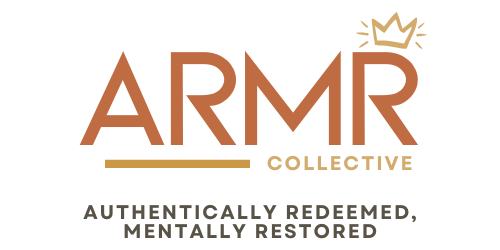Protecting your peace and setting healthy boundaries makes all the difference in your mental health. Deciding to distance yourself from people who leave you spiritually and emotionally empty is a healthy practice and should be applauded.
But what happens when “protect your peace” becomes more than taking care of your own mental health? What if it instead becomes a permission slip for bitterness and grudges?
As a society, we LOVE being outraged. Our culture thrives on division and anger masked as healthy boundaries. How did we rebrand holding grudges as self-care? When did bitterness become a personality trait we’re proud of? Why do we celebrate cutting people off immediately instead of trying to work through conflict?
When did “protecting your peace” become code for never forgiving anyone?
Redefining Modern Wrath
Wrath isn’t red-hot steam pouring from your ears anymore. Today’s wrath is so heavily disguised and normalized that it’s hard to even recognize anymore. It’s the rise of outrage culture, bitterness redressed as self-care, perpetual offense as entertainment, and chronic resentment disguised as wisdom.
Modern wrath is chronic irritation and socially acceptable bitterness—so prevalent and accepted that we don’t even recognize it as sin anymore.
Our polarized society normalizes chronic anger, especially with the rise of outrage culture in everything from politics to health decisions. It’s the “either you’re with us or you’re against us” mentality. There seems to be no middle ground on any issue. We use “protect your peace” as a justification for holding grudges, stewing in resentment, and engaging in cancel culture. Instead of viewing unrighteous anger as a sin, we use it for entertainment and identity.
We watch the opposite political viewpoints’ news channels for our daily dose of outrage. We doomscroll on Facebook, hearting posts that solidify our biases and comment insults on posts that contradict our viewpoints. Instead of healthy communication to resolve issues, we cut people off entirely at the first sight of conflict. We wear offense as a uniform and absorb it into our personalities.
Modern Wrath’s Leading Characters
We’ve not only normalized these behaviors—we’ve turned them into identities. Modern wrath has its own cast of characters, and chances are you’ll recognize them:
The Perpetual Offense Collector
The perpetual offense collector lives for outrage. They scroll on Facebook, eyes like a hawk, looking for things to be upset about. Their thumbs are fit and ready for keyboard war with strangers on social media. Being offended isn’t just an emotion, it’s a way of life.
But this can show up in more unassuming ways too. This can be catching yourself scrolling specifically for things that will make you angry or feeling that little bit of satisfaction when you find the perfect post to be outraged about. Maybe it’s realizing you’ve spent 30 minutes crafting the “perfect” comeback comment, or noticing that you’re always ready to be offended, always looking for the slight, always assuming the worst intent.
We’ve all been there. Regardless of political affiliation, lifestyle preferences, stages of life, it’s so easy to get addicted to self-righteous indignation. It’s way too easy to get riled up about misinformation reposted on Instagram.
Our social media algorithms know us too well and purposely show us content that reinforces our beliefs, no matter if they’re right or wrong. Outrage becomes a part of our personalities and brands. We become the ultimate authority on certain topics, and everyone else is either wrong, dumb, or both.
(Anyone else feeling called out or is it just me?)
The Grudge Guardian
The grudge guardian’s favorite thing to say is, “Protect your peace.” But they don’t use it in a self-love, self-care way. No, they put a masquerade mask on “protect your peace” to justify never forgiving anyone. They’re proud of everyone they’ve cut off. Trophies line their walls, each one marking a grievance or person they no longer associate with. Instead of creating healthy boundaries, they get out their brick trowels and get to work building walls of bitterness.
And it can be more subtle than this. It can be using “I’m protecting my peace” to justify never having that hard conversation. Maybe we feel proud when we tell people about someone we “had to cut off” or keep a mental list of everyone who’s wronged us, ready to recite it when needed. Maybe we avoid family gatherings because they “don’t respect my boundaries”—but really, we don’t want to do the work of forgiveness.
Sometimes protecting your peace becomes protecting your right to stay hurt.
The Cynical Sage
The cynical sage knows all. They know that all people have bad motives. They’ve learned from past hurts and know not to trust anyone. Nothing ever goes right in their lives; that’s why their default is low-level irritation. Their pessimism badge shines brightly on their chest as they roll their eyes at those silly, hopeful people. They know that people never change. Hanging out means comparing and contrasting complaints, exchanging gossip about how annoying people are, but it’s okay because they’ve been through a lot. It justifies their bitterness, don’t you know?
Sound familiar? Assuming that all people are terrible lets us down easy, right? I spent so much of my life as this character. When I experienced so much loss, I “knew” all about the struggles of life. Everyone else’s struggles were inferior compared to mine. My past wounds were evidence that hope is naive and pointless, especially after losing so many loved ones to cancer.
Like cancel culture, we don’t let people grow or learn from mistakes. We bond with others by exchanging complaints and gossip, harping on past mistakes of “friends” and criticizing their every move. When our pessimistic predictions come true, we cross our arms and say, “I told you so.” We slap labels on bitterness and wounds and call them “realism” and “wisdom”. Anyone who has hope is foolish and doesn’t know better. We already know how things will end up. Terrible.
The Road Rage Therapist
The road rage therapist uses their daily commute as their personal anger outlet. Their white-knuckled hands grip the wheel, ready for battle. Every red light is a personal attack, every slow driver is a moral failure, and every lane-changer is the enemy. They’re the only one who knows how to drive, clearly. Everyone else out here is an idiot, and they let them know it. Their car becomes a vacuum where they scream about everything that’s wrong with the world. Except they’re the therapist AND the patient so nothing ever gets resolved.
I saw an Instagram reel about, “What if we acted in real life the way we act when we’re road raging?” It was a hilarious reenactment of people walking extremely close to each other, flipping each other off while walking past them, and yelling obscenities when someone stopped walking.
The reel honestly shed light on how ridiculous road rage can be. Minor inconveniences somehow trigger major reactions in ourselves—like we find some sort of symbolism in road incidents and connect them to bigger frustrations. We find ourselves acting in ways we’d never act otherwise. Instead of dealing with the real issue, we take it out on other drivers. This has become so normalized and dismissed as “just” road rage that explosive reactions to small problems seem totally acceptable. And this doesn’t just happen on the road either. The smallest inconveniences become the end of the world.
I’ll never forget when I worked at Dairy Queen in high school, we once ran out of Oreos. I couldn’t believe how rude people were to me, as if I singlehandedly intercepted the package of Oreos and deliberately kept them from arriving just to spite our customers. It literally seemed like the end of the world for some people by the way they reacted.
But how many of us have reactions that are completely disproportionate to the actual problem?
The Passive-Aggressive Peacekeeper
The passive-aggressive peacekeeper is fine. Sure, they’re refusing to speak to you, but they’re FINE. That subtle dig they made was a joke, relax. They don’t ask for much; they just want to keep the peace and if that means swallowing down issues and avoiding confrontation at any and all cost, that’s what they’ll do. No, their insides aren’t filling up with resentment or bitterness, ready to explode at a moment’s notice. If you could just read their mind about what’s wrong, it would save a lot of time for everyone. But don’t even worry about it because NOTHING’S WRONG, THEY’RE FINE.
If you’re married or in a relationship, this may hit a little harder for you. There’s somewhat of a joke that if a significant other says they’re “fine”, then they’re definitely not. We all laugh, but I’ve been guilty of this so many times. I want my husband to read my mind and know what I’m upset about, but I don’t want to bring it up myself because I hate confrontation. So instead, I spend some time in Bitterness and Resentment Stew until I explode. And then my poor husband is caught completely off-guard.
I will say I’m better at this now, but I KNOW I’m not the only one. I’ve used “keeping the peace” as an excuse to avoid confrontation while resentment builds behind the scenes. We stay quiet and want people to magically know what’s wrong without us telling them. And when they “act” clueless (because they literally don’t know what’s happening), we lash out with “jokes”.
Culture loves to joke about passive aggression, but underneath the humor is a real problem. This perpetual defensiveness is exhausting for everyone involved and can eventually boil over in destructive ways.
The Cost of Being These “Characters”
We’ve become so addicted to offense that even suggesting we might be too easily offended…offends us. We’ll defend our right to be perpetually angry more fiercely than we defend our right to peace.
And this costs us dearly over time.
The Mental Health Cost of Modern Wrath
Think of your brain like paths through a forest. Every time you choose anger, you’re wearing down that trail, making it easier to walk next time. Meanwhile, the paths to joy and peace get overgrown from lack of use.
Chronic anger works exactly like this. Every time we choose outrage over peace, every time we scroll for things to be mad about, we’re wearing down that anger pathway. Meanwhile, our brain’s rational thinking center—the part that would normally say “hey, maybe this isn’t worth getting upset about”—gets pushed off the main trail entirely.
Over time, anger becomes your default because it’s the most well-worn path. All that stress flooding your system makes it harder to form new, healthy pathways.
We literally lose our ability to feel genuine happiness because our brains have become addicted to the adrenaline rush of being perpetually angry. The anger pathway becomes a highway while everything else turns into overgrown trails.
Spiritual Consequences
Unless God shouts at us, it’s hard to have an open heart to hear Him when we’re consumed by anger. For me, I have to concentrate pretty hard to hear what God has to say.
If our brains are filled with resentment, bitterness, outrage, and frustration, where is God supposed to fit?
Bitterness hardens our hearts towards others, making it difficult to connect with people. We could, in turn, miss opportunities for ministry or new relationships. If we hold anger close, the fruits of the Spirit will move further and further away from us. How can we have the spirit of Peace if we’re holding onto irritation so tightly?
Relational Destruction
Who here wants to hang out with an eternally angry person? Chronic anger naturally pushes people away. If all you have to say are complaints, no one is going to want to stick around to hear them after a while. Being perpetually offended leaves you all alone—everyone is scared they’ll offend you. Everyone learns to walk on eggshells around you before tiring out and staying away altogether.
Living like this causes us to miss out on potential grace-filled relationships. Someone could be willing to overlook your anger and extend grace, but if their grace keeps getting met with bitterness and outrage, eventually they’ll stop coming around, and you will have missed out.
So how do we find a healthy balance? How do we actually protect our peace without using it as an excuse to stay angry all the time? Let’s see what the Bible says.
Biblical Perspective on Modern Wrath
James 1:19-20 says, “…be quick to hear, slow to speak, slow to anger; for the anger of man does not produce the righteousness of God.” Not all human anger is sinful, but the quick-tempered, selfish anger of humans shows a lack of trust in God and a lack of love for others.
Unrighteous anger is an unrolled red carpet for the devil to walk in on.
There’s a difference between righteous anger that motivates us to act against injustice—like Jesus overturning tables in the temple—and selfish anger that just makes us feel superior.
Instead of storing anger away to fester, we need to allow ourselves to process it healthily. Anger itself isn’t a sin. We are allowed to have emotions, even negative ones. It’s when we let anger turn into sin that problems begin. The Bible tells us to be slow to anger versus quick to offend.
Righteous anger leads to action, whereas bitter resentment keeps us trapped, slowly chipping away at ourselves until there’s nothing left.
This leads us to one of the most difficult commands in Scripture.
The Commandment to Forgive
Forgiveness is NOT optional, as much as we want it to be. If we want our sins to be forgiven, we HAVE to forgive others. “But some things are unforgivable!” It can feel this way; trust me, I’ve felt this too. But forgiveness isn’t a one time thing. It’s a daily, sometimes even hourly choice. As I’ve written before here, it can take time, but we are commanded to try.
Jesus said, “If you do not forgive others their trespasses, neither will your Father forgive your trespasses” (Matthew 6:15). We did everything wrong, and Jesus still paid for our sins. It’s up to us if we want to accept that the debt’s been paid in full by Jesus or pay for it ourselves in Hell. This is a hard truth, but it’s a truth we need to wrestle with.
With stakes this high, it’s no wonder the enemy works overtime to keep us trapped in anger.
Spiritual Warfare
The enemy thrives in outrage culture. He loves to use chronic anger to steal our joy and keep us perpetually offended and defensive. Bitterness blocks God’s voice, amplifying our own hurt and self confirmed biases. Anger is a tool for division and isolation in the hands of the devil. It’s so easy to act out in anger, when our fight-or-flight response fires and switches us into survival mode. This makes it that much easier to sin and put God on the back burner.
So how do we defend ourselves against modern wrath?
Fighting Back
First, we need to recognize the patterns. Now that you’ve met the cast of Modern Wrath’s greatest hits, which character felt a little too familiar? Recognizing these patterns in ourselves can be painful. We might feel convicted, ashamed, or even angry about being called out. But how do we know if we’re actually stuck in modern wrath patterns or just having normal human moments?
Here’s a simple test: Does your anger lead to constructive action or just chronic resentment?
Righteous anger motivates you to solve problems; modern wrath just feeds on itself.
For my fellow Perpetual Offense Collectors: Try a 24-hour outrage fast—no scrolling for things to be angry about. Check and see if you’re spending more time commenting on things you disagree with than sharing things you love. Or maybe even challenge yourself to see from the “other side’s” perspective. Maybe they’re not stupid after all.
Grudge Guardians, this one’s for you: Practice the difference between protecting your peace and poisoning it by asking, “Am I responding from love or hurt? Am I seeking to understand or to be right?” Take your grievance trophies off the shelf, pack them up, and send them off to be donated. Ask God for help with forgiving those who’ve wronged you.
Cynical Sages, try this: Challenge yourself to assume good intent for one full day. Try to withhold from complaining or gossiping about people for an entire day and see how it changes your outlook. Maybe that lady who grabbed the last case of Coca-Cola wasn’t trying to sabotage your day. Try having hope and see if it changes anything. If things still don’t turn out for the best, will you be any less sad/mad than you would be if you hadn’t had hope?
Road Rage Therapists: Next time you’re in the car, try using that time for gratitude instead of venting. Every time you’re stopped by a red light, take the time to list out things you’re thankful for. It will turn green before you know it! Find a healthier outlet for legitimate frustration (have you ever tried a rage room?). Building habits of gratitude and joy can rewire our brains back to how they’re meant to be.
And for all the Passive-Aggressive Peacekeepers: Instead of expecting mind-reading, try this script: “I’m feeling hurt about…” You might be surprised how easily some issues can be resolved when they’re not smothered down until you hit a breaking point.
The goal here isn’t to never feel angry again—anger itself isn’t sin. The goal is to process anger healthily instead of letting it fester into bitterness, resentment, and chronic offense. When we recognize the patterns, we can begin to interrupt them and choose a different response.
This isn’t about becoming doormats or never standing up for what’s right. It’s about making sure our anger is actually righteous and leads to constructive action, not just constant offense.
From Wrath to Peace
Every moment offers us a choice between peace and perpetual offense. Our polarizing culture will keep feeding us reasons to be angry. Especially right now, when emotions are running high and it feels like everything is a battle worth fighting. We can protect our actual peace instead of our right to be angry, or direct our righteous anger toward constructive action.
Let me be clear: this isn’t about staying silent when injustice happens or never taking a stand for what’s right. There are absolutely things worth fighting for—biblical truth, protecting the vulnerable, standing against genuine evil.
Righteous anger that leads to constructive action is biblical and necessary.
But there’s a difference between righteous anger that motivates us to love our neighbors better and chronic outrage that just makes us feel superior. Between standing for truth and being addicted to being offended. Between righteous indignation and entertainment-based anger.
The question isn’t whether we should care about important issues. It’s whether our anger is actually productive or just poisoning our peace.
Imagine how freeing it’d be to live a life without chronic bitterness poisoning every interaction. Having relationships built on grace instead of having a grievance collection. Our minds freed up for joy, creativity, and purpose instead of outrage. And our walls of resentment demolished, allowing us to have spiritual connections again.
So here’s my challenge to you (and myself): Pick one character you relate to most and commit to their specific challenge for one week. Or try a 24-hour anger fast and see what happens when you don’t consume outrage content.
Ask yourself, “Am I protecting my peace or poisoning it?”
And remember, we will inevitably fail at this, but our God is full of grace and forgiveness. We can pick ourselves up and try again because He’s already won the battle.
We fight FROM victory, not FOR victory.



